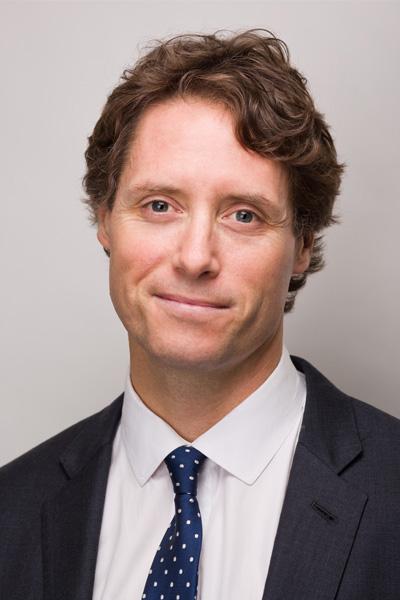This is the 197th Slaughter & Rees Report that we two Matts have written. Sadly, this is the first one you are reading without the expert editorial oversight of Ed Winchester.
Edward Vincent Winchester, the beloved executive director of marketing and communications here at the Tuck School of Business, died unexpectedly last week at the too-young age of 49, of natural causes while exercising.

The Tuck School’s mission is to develop wise, decisive leaders who better the world through business. Ed’s deft hand in helping launch the Slaughter & Rees Report was emblematic of all the ways in which he was indeed a wise and decisive leader—as one of us, Matt S, shared with the Tuck community last week.
Ed gracefully balanced confidence and humility. He was a world-renowned Olympic rower and a gifted and accomplished writer, full of skills and expertise, but he moved through his days without a trace of hubris or swagger. Ed listened with great empathy. In key meetings, he could process the many moving pieces to identify unifying themes and directions. Ed moved with purpose. He and his team regularly worked on high-stakes outputs under firm deadlines; he would calmly set the course and inspire high productivity to deliver great content.
Ed moved with purpose. He and his team regularly worked on high-stakes outputs under firm deadlines; he would calmly set the course and inspire high productivity to deliver great content.
We two Matts got to know each other nearly 14 years ago, when we were both working in the US government. We both love to think, analyze, and write about the global economy. About seven years ago we decided to try collaborating on these topics. Thus was the Slaughter & Rees Report born. But it wouldn’t have survived as it has without Ed.
The writer-editor relationship is often fraught. Writers frequently complain that editors have wrung the life out of their copy. In turn, editors often believe they are upholding the words of T. S. Eliot: “Some editors are failed writers, but so are most writers.”
Ed never wrung any life out of us. Rather, our first drafts always came back more vibrant when Ed had reviewed them. Our language was a bit tighter, our transitions were a bit smoother, our arguments were a bit crisper. This was especially true in our early days, when he helped us find our cadence, much as a coxswain brings rowers into synchronicity.
The last missive we wrote with Ed’s oversight was last month, “How to Avoid a Coronavirus Depression.” Since that time, unfortunately, the US and global economy is indeed falling hard, with the bottom not yet clearly in sight. Yesterday the Bureau of Economic Analysis reported that US gross domestic product contracted in the first quarter at an annual rate of 4.8 percent, the sharpest decline since the fourth quarter of 2008. This morning the Bureau of Labor Statistics reported that in the past six weeks, about 30 million Americans—nearly 20 percent of the labor force—have filed new claims for unemployment insurance.
Yet at the same time, companies and organizations around the world are rallying, in ways small and large, to overcome this coronavirus pandemic. And who is driving this effort are leaders like Ed.
Companies and organizations around the world are rallying, in ways small and large, to overcome this coronavirus pandemic. And who is driving this effort are leaders like Ed.
It is leaders like Ed of world renown like Bill Gates, who earlier this week announced that his and Melinda’s Gates Foundation will devote its “total attention” to the pandemic. It is also lesser-known leaders like Ed, like the 43 employees of the company Braskem America who self-quarantined for 28 straight days in their Pennsylvania plant to work and sleep around the clock in 12-hour shifts to produce tens of millions of pounds of the plastics that go into face masks and other essential personal protective equipment. No Braskem executive asked these 43 colleagues for such a full measure of devotion. Twenty-seven-year veteran and supervisor Joe Boyce simply said, “We were just happy to be able to help.”
Research has long shown that the strongest organizations empower as many colleagues as possible to be wise, decisive leaders. Our world will overcome the coronavirus pandemic faster the more these kinds of leaders are allowed to thrive. Tragically, we at Tuck lost one of those leaders last week. But the spirit of Ed Winchester lies within many colleagues in many of our organizations. Help us honor Ed by doing all you can to empower them to better our world, because right now we really need all the Eds we can get.
Rest in peace, Ed.

